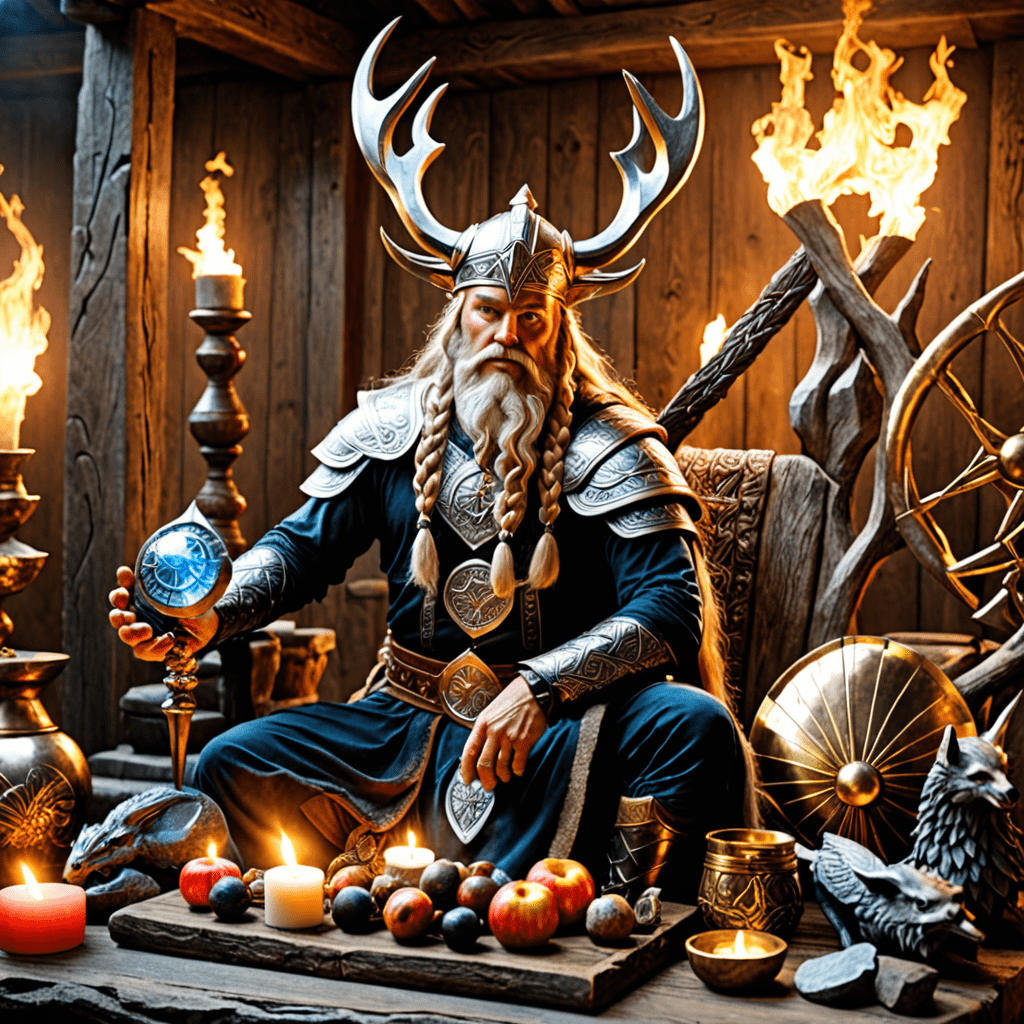The Influence of Norse Mythology on Norse Medicine and Healing Practices
1. Introduction to Norse Mythology
Norse mythology, the body of myths from the Northern Germanic people, has deeply influenced various aspects of their culture, including medicine and healing practices. The myths of the Norse gods, goddesses, and powerful beings laid the foundation for how the ancient Norse people understood health, disease, and healing methods.
2. The Role of Mythological Figures in Healing
In Norse mythology, several deities and supernatural beings played significant roles in concepts of health and healing. For example, Eir, a goddess associated with healing and medicine, was often invoked for assistance in curing illnesses and injuries. The deity Idun was linked to rejuvenation and vitality, symbolizing the importance of sustaining health and youth.
3. Rituals and Practices Influenced by Norse Mythology
The Norse people incorporated their mythological beliefs into healing practices and rituals. Runes, the letters of the runic alphabets often associated with magical powers, were believed to hold healing properties when used in inscriptions or chants. Shamans and healers would sometimes call upon the gods and goddesses for guidance and assistance in treating ailments.
4. The Holistic Approach to Healing in Norse Culture
Healing in Norse culture was often viewed holistically, considering the interconnectedness of body, mind, and spirit. The myths provided insights into the balance of the natural world and the importance of maintaining harmony within oneself to achieve overall well-being. The use of herbs, charms, and incantations in healing practices reflected the blend of natural remedies and spiritual beliefs rooted in Norse mythology.
By exploring the influence of Norse mythology on medicine and healing practices, we gain a deeper understanding of how ancient cultures integrated spiritual beliefs and natural remedies to maintain health and treat illness. The rich tapestry of myths and legends not only entertained the Norse people but also guided them in their pursuit of physical and spiritual wellness.
FAQs about the Influence of Norse Mythology on Norse Medicine and Healing Practices
What role did Norse mythology play in shaping Norse medicine and healing practices?
Norse mythology greatly influenced Norse medicine and healing practices by providing insights into the spiritual and supernatural aspects of health. Gods like Odin and Frigg were associated with healing, guiding the use of herbs, runes, and rituals in treatments.
How did Norse myths inspire remedies and treatments in ancient Norse societies?
Norse myths often contained stories of gods and goddesses using magical herbs or objects for healing purposes. These stories inspired the use of herbs, amulets, and incantations in Norse healing practices to invoke the gods’ healing powers for the sick and wounded.
Were there specific deities in Norse mythology associated with healing?
Yes, several Norse deities were linked to healing. For example, Odin was revered as a healer, often depicted as the god of shamans and medicine. Frigg, the goddess of marriage and household management, also played a role in healing practices, especially among women.
How did beliefs in Norse mythology impact the way illnesses were perceived and treated?
Illnesses were often seen as the result of spiritual imbalances or malevolent forces in Norse mythology. Healing practices focused on restoring harmony and balance, using a combination of natural remedies, rituals, and invocations of deities for




